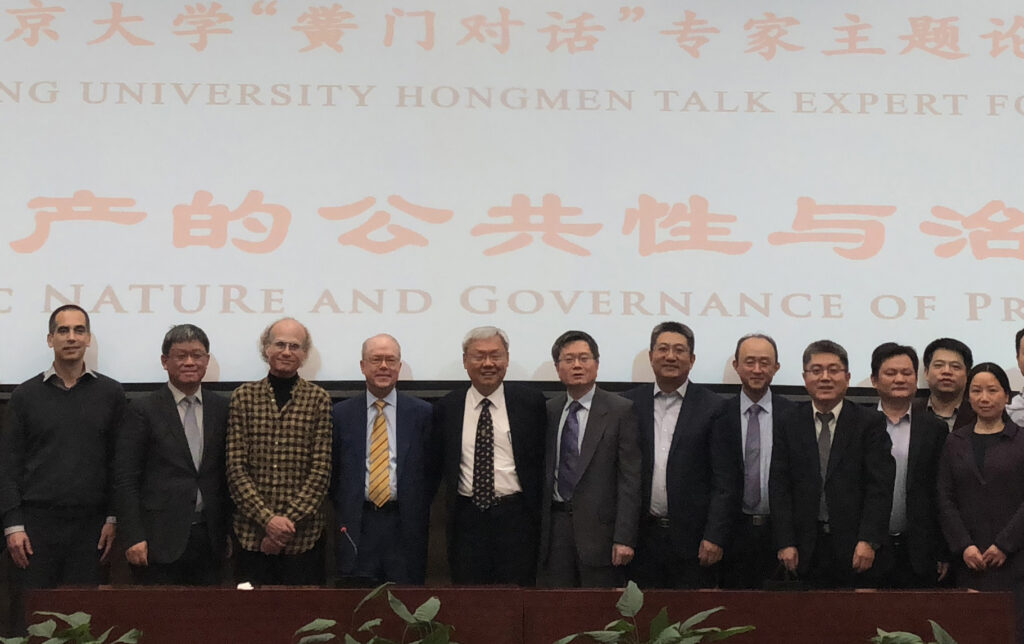This website uses cookies
We use cookies to ensure that we give you the best experience on our website. If you continue to use this site we will assume that you are happy with it.
On April 14, Gregory Alexander, the A. Robert Noll Professor of Law, was the featured speaker at a forum on “Publicity and Governance of Property,” held in Shenzen, China, and sponsored by the Institute for Law and Economics of Peking University Law School.

Gregory Alexander (fourth from left) at the forum on “Publicity and Governance of Property” at Peking University
In his lecture, Alexander addressed the debate in the Western legal systems over the role of the right to exclude—is that right the sine qua non of private ownership, as some scholars have argued? In particular, Alexander explained the “human flourishing” theory of ownership that he developed in his new book Property and Human Flourishing. Published in March by Oxford Press, the book has been called “essential reading” and “an instant classic” by leading experts.
Following Alexander’s lecture, several commentators spoke, including Professor Young-Chin Su, of the National Chengchi University, Taiwan, a former justice of the Taiwan Supreme Court. Su discussed some of the similarities and differences between common law and civilian conceptions of ownership. He also noted similarities between Alexander’s human flourishing theory and Confucian theory.
Alexander, a prolific author, has been a member of the Cornell faculty since 1985. He was the winner of the American Publishers Association’s 1997 Best Book of the Year in Law Award for his path-breaking book, Commodity and Propriety. His most recent book is An Introduction to Property Theory (with Eduardo Peñalver). Alexander, who has taught at UCLA, Virginia and Harvard law schools, was the Herbert Smith Distinguished Visiting Fellow at Cambridge University. He also has been a fellow at the Center for Advanced Study in the Behavioral Sciences at Stanford University in Palo Alto, and at the Max Planck Institutes for Comparative Public Law and International Law in both Heidelberg and Hamburg, Germany.